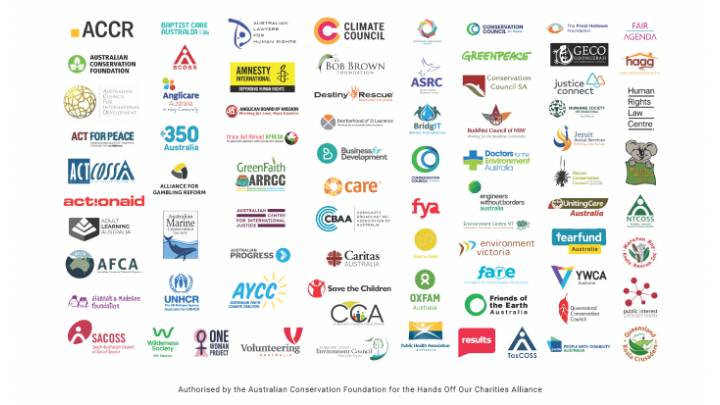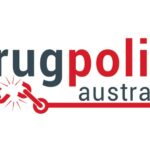Last Chance to Halt Coalition’s Muzzling of Charities and Not-for-Profits

Drafted in February by the executive branch of the government, amendments to the laws governing charities were tabled before by houses of federal parliament on 3 August, and if a disallowance motion doesn’t strike them down, the changes will serve to silence the nonprofit sector.
Registered on 28 June, the Australian Charities and Not-for-Profits Commission Amendment (2021 Measures No. 2) Regulations 2021 alters the regulation pertaining to charities, which is a form of delegated legislation, meaning ministers can change it without parliamentary oversight.
These amendments are problematic as they dramatically lower the bar in terms of the circumstances in which the charities commissioner can deregister a not-for-profit or a charity.
If the amendments stand, a charity can be shut down based on its involvement in the commission of a summary offence, which covers a range of minor offences, including those most often laid in relation to public demonstrations, such as obstructing traffic.
Hands Off Our Charities is campaigning against the changes. The coalition of over 80 charities and not-for-profits is calling on federal MPs to disallow them, as it insists that a time of mounting crises is not the right moment to silence the voices of those providing support on the ground.

Silencing the vulnerable
“Advocacy is a fundamental tool in the toolbox for any charity that’s pursuing their charitable mission,” explained Saffron Zomer, the executive director of the Australian Democracy Network, which is coordinating the Hands Off Our Charities campaign.
“That’s in a few different ways,” she continued. “One of the things that charities do is provide frontline services, which means they have a wealth of information about how policies are impacting people on the ground, and what communities’ needs and preferences are.”
The lawyer stressed that from this coalface position these not-for-profit organisations are able to speak from this perspective and help shape public policymaking. And she adds that as these organisations work with diverse communities, they serve to give them voice.
First Nations nonprofits raised their concerns about the measures on the day after the tabling of the amendment, asserting that organisations could be shut down for protest-related actions at a time when there is a growing focus on deaths in custody and overrepresentation in prisons.
“So, silencing charities is really cutting a lot of Australian citizens out of these public debates about what our national priorities should be and how our policies should be set,” Zomer told Sydney Criminal Lawyers.
A coordinated assault
The attempt to silence civil society groups from criticising the government commenced in 2017, when the Turnbull government tabled the original Electoral Funding and Disclosure Reform Bill 2017.
Yet, Hands Off Our Charities was instrumental in seeing that legislation amended so that it didn’t stymie nonprofits.
That same year also saw the controversial appointment of Dr Gary Johns to the position of commissioner of the Australian Charities and Not-For-Profits Commission (ACNC), which was a red flag as the former MP was known to be a vocal critic of charities.
On being asked why the Coalition is cracking down on charities, Zomer said, “There is a strong view amongst some in government that proper charities focus on delivering services, and advocacy is not a legitimate charitable activity and it should be stopped.”
“They just don’t want that plurality of voices in public debate,” she added, “Maybe they would say they support advocacy, but their definition of it is extremely narrow.”
Ruling by decree
Governance standard 3 of the Australian Charities and Not-For-Profits Commission Regulation 2013 (Cth) currently permits the ACNC commissioner to hold a charity responsible for conduct resulting in indictable offences or civil offences carrying at least 60 penalty units and therefore deregister them.
While these current offences are more serious in their scope, the addition of summary offences means minor breaches of the law that carry small fines could potentially lead to deregistration.
A second major amendment is that charities and not-for-profits can be held liable for producing material that provokes others to commit summary, indictable or civil offences.
This means a climate nonprofit could potentially be held responsible for an activist being convicted of blocking traffic if that demonstrator were inspired to take protest action after having read about the climate crisis on the not-for-profit organisation’s website.
The ACNC regulation and the current amendment are forms of delegated legislation, which permits government ministers to draft new laws without having to table them in parliament, where they would be debated.
Some pieces of delegated legislation can be disallowed by MPs, while others are enforced on registration.
The Australian Charities and Not-for-Profits Commission Act 2012 (Cth) is the primary piece of legislation governing the sector. Section 45.20 of the Act provides that once a change to the regulation is tabled, it becomes law if it isn’t disallowed over a set period.
Zomer explained that in this case the disallowance period is within 15 sitting days of parliament. And the amendment is tabled in both houses on the same day, where, unless enough members support a disallowance motion in one, it is automatically approved by both houses on the sixteenth day.
This means a disallowance motion regarding the charities amendment may be brought up until 2 September.
A chilling effect
According to Zomer, it is “extremely likely” a disallowance motion will be moved as there are a number of senators that are opposed to the amendments, however it’s unclear if there are enough who’d support the passing of it.
In terms of their impact, the lawyer advised that there would be a massive compliance cost as those in the sector scramble to understand how they have to change their practices to such an extent that they don’t breach the “extreme” measures before parliament.
“There will be a chilling effect because the regs have been drafted so broadly and have such a strong discretionary element in them that oftentimes when charity boards or leaders don’t understand whether they’re in compliance, they will naturally err on the side of caution,” Zomer warned.
“A lot of charities will not be doing perfectly lawful and legitimate work just because they don’t completely understand the regulations as they’ve been drafted so broadly.”







